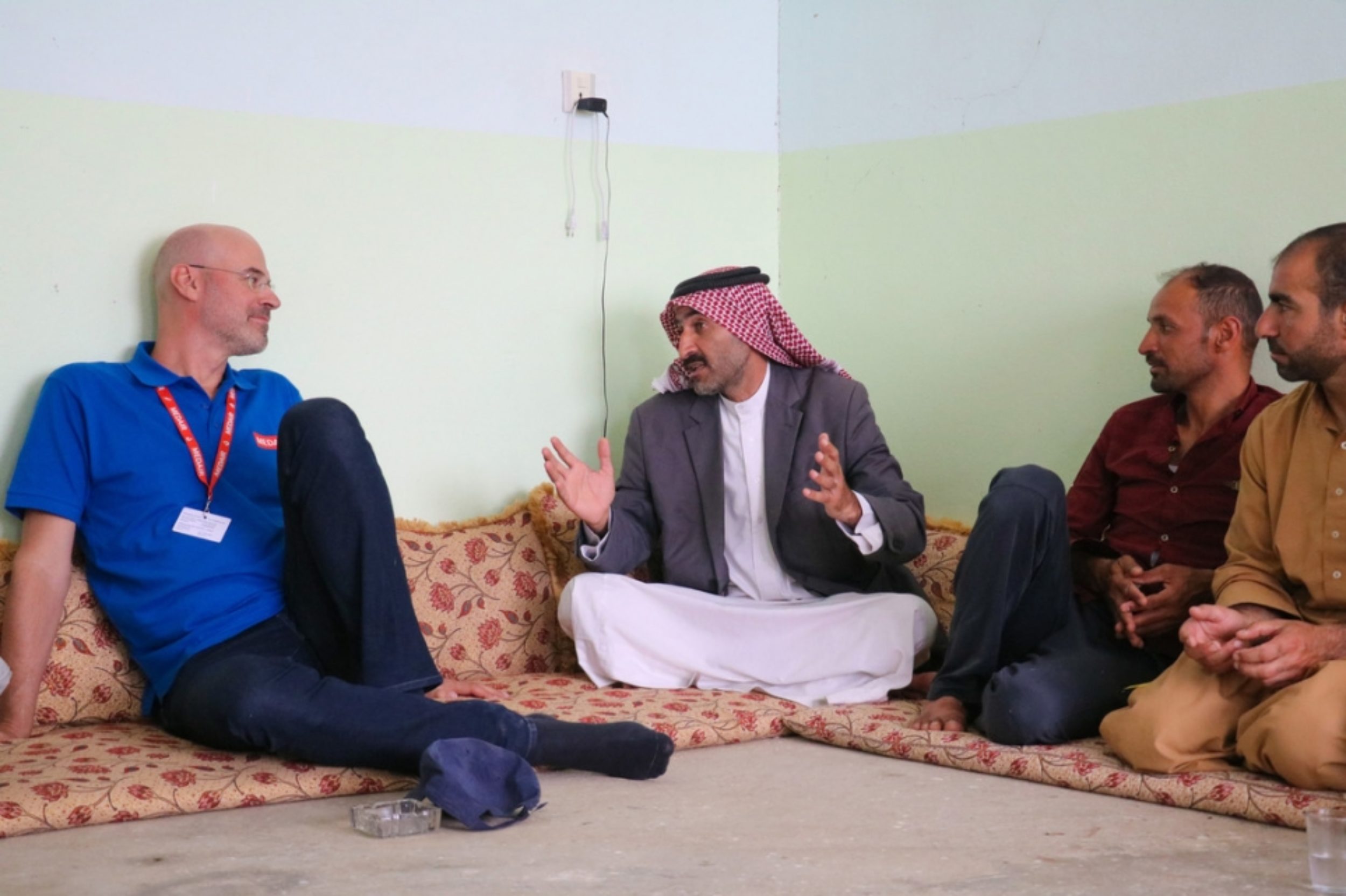CEO Blog: A Visit to Jordan
I recently made my first visit to the field as Medair’s new CEO, travelling to Amman, Jordan, on the first stop of my week-long visit to two countri…
 Read more
Read more
Some of the most important steps in humanitarian action don’t involve distributions, construction, or even medical care. With Medair’s approach, we begin all of our projects by building relationships and engaging with communities. On my recent trip to Iraq, I met with the leaders of a village outside of Mosul and heard how the Medair team involved them in designing a response suitable for their needs.
This village of 2,000 people was once a thriving agricultural centre. In 2014, the entire village population fled when conflict reached their borders. Over the three years that followed, families exhausted their savings and sold their livestock to survive, returning only when Mosul and the surrounding area were retaken from oppositional armed groups. During the crisis, the village was heavily contaminated with explosives and 80% of the buildings were damaged or destroyed. Livelihoods have been lost and people are working hard to rebuild their lives.
Leaders like Khalil are responsible for the well-being of their communities, and are often the first point of contact when Medair is assessing the needs of an area. When I visit his home, Khalil tells me he is pleased with the way his community was consulted. In February, a project team had met with leaders and residents to ask about the most important needs; health care and water tanks were at the forefront and Medair responded with a mobile clinic and distributions of water storage tanks, along with basic household items.
“We were in need of everything,” says Khalil. “You listened to our concerns and you came to help. There was no one else here to help. You even drove house to house delivering water tanks. We are truly grateful.”

Each week, Khalil opens his home for Medair’s use as a mobile medical clinic location. The pharmacy sets up in his sitting room, and the doctors and nurses use the shade of his front veranda to see patients in the courtyard. From the time the team sets up for the day, people arrive on foot to receive treatment for common illnesses like upper respiratory infections and chronic diseases such as diabetes and hypertension.
We often hear about the action aspect of our projects, and of course doing that well is vital, but high-quality, people-centred aid starts with conversations between our staff and those we are striving to help. I’m proud to say that in Khalil’s village we’ve done well from the initial stages of consultation and project design to the execution of health, water, and sanitation services and the distribution of essential items. We will remain here as long as we are needed, working alongside Khalil and his community to aid in recovery in northern Iraq.

